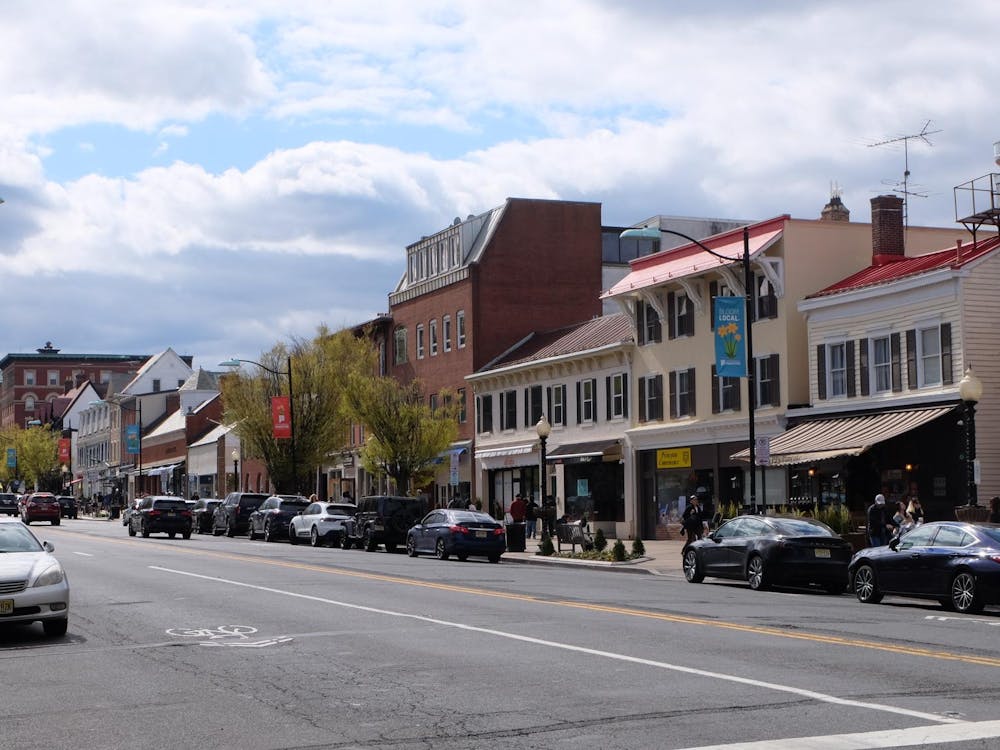“I believe that settling the definition of marriage in the state by a referendum would make sense,” George said in an email.
Christie justified the decision by saying that issues like gay marriage were best decided by the people, rather than elected officials, which George said was “certainly a reasonable opinion.”
On Thursday, Republican state senator Kip Bateman, who represents Princeton Borough and Township, introduced a bill that, if approved, would pave the way for a referendum this November. Democrats, who control the state legislature, have vowed to vote against the bill.
In late January, Christie warned that he would veto a same-sex marriage bill that is currently being pushed through the state legislature, citing the need for public input after a town-hall-style meeting in Bridgewater, NJ. If enacted successfully, the bill would eliminate civil unions and enable gay and lesbian partners to marry. A similar bill to legalize gay marriage in the state was narrowly defeated in 2009.
If Bateman’s measure passes, voters themselves, rather than their elected legislators, will decide the contentious issue this coming election day.
George, the McCormick Professor of Jurisprudence and Director of the James Madison Program, has been a national leader in the conservative opposition to same-sex marriage. He has worked with a number of advocacy groups and founded the American Principles Project, a group that advocates for the defense of traditional marriage.
George defined marriage as “the conjugal union of husband and wife.”
He suggested that Christie’s decision to offer the issue to New Jersey voters was based on a conviction about the decision’s moral significance.
“I think it’s really important for people to understand that this debate as a whole is a debate among reasonable people of good will who just see the world in very different ways,” George said in an interview earlier this week.
George suggested that the governor’s decision to offer the issue to New Jersey residents was based on a conviction about the decision’s moral significance.
“I believe Governor Cuomo in pushing for the redefinition of marriage in New York was doing what he believed to be right, even though I disagreed with it, and I believe that Governor Christie in New Jersey is doing what he believes to be right,” he said.
“He seems to have the view that if you have a question of this measure, of this degree of cultural and moral significance over the most foundational, fundamental institution of society, more fundamental than the legal system or even the economy — the family itself — if you have something this fundamental, it should be resolved by the people as a whole,” George said.

The state senate will consider the referendum bill on Monday, Feb. 13, and the legislation will go before the full assembly for a vote on Thursday, Feb. 16.
Though political calculation is inevitable in most situations like this, George said that he thought most politicians and the supporters of each side were sincere in their views.
The public needs to “recognize it’s not you know ‘libertines against good people’ or ‘bigots against good people,’ but it’s ‘good people against good people,’ ” he added.
In a press conference after the meeting in Bridgewater, Christie asserted that “the institution of marriage is too serious to be treated like a political football” and insisted that the legislature ought to trust the people to make the right decision.
But Democrats and gay rights advocates immediately decried Christie’s suggestion, arguing that marriage equality is a civil right that is guaranteed by the Constitution and ought to be ensured by the legislature.
The governor came under fire again later that month after remarking that same-sex marriage supporters ought to appreciate peoples’ freedom to decide such fundamental issues, claiming that voters would have been happy to hold a referendum on civil rights in the 1960s instead of fighting for their rights in the South.
Senate president Stephen M. Sweeney and other Democrats have said that they will not allow the matter to be put on the ballot and are continuing to support the gay marriage bill.
Legalizing same-sex marriage has been an important priority for New Jersey Democrats this year, but social conservatives regard the restriction of marriage to heterosexual couples a critical goal.
The referendum proposal comes at a time when Christie is rising to national prominence within the Republican Party and is widely speculated to be on the short list of potential vice-presidential candidates.
Although New Jersey often votes for Democrats in presidential elections, it has frequently elected Republican governors like Christie. George said this history makes the result of the potential referendum unclear.
“New Jersey is a state that probably tilts a bit to the socially liberal side, but there’s also a strong social conservative element, which means that the outcome could very well depend upon which side is more effective at making its argument in the public square,” George said.
Though George’s definition of marriage has triumphed in referenda even in Democratic-leaning states like California, Wisconsin and Maine, whether the referendum will take place and what New Jersey voters will decide is unknown.
“I think it’s very difficult to predict. I wouldn’t want to put any money on an outcome, one way or another,” George said.
Referenda on same-sex marriage have so far been held in 31 states across the nation. Washington, D.C., and seven states have approved same-sex marriage.
Earlier this week, the United States Court of Appeals for the Ninth Circuit in California overturned the controversial Proposition 8 ban on gay marriage, which was passed by California voters in 2008.







